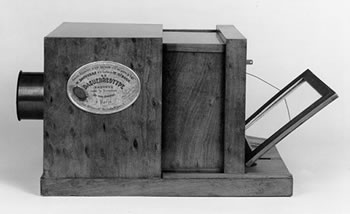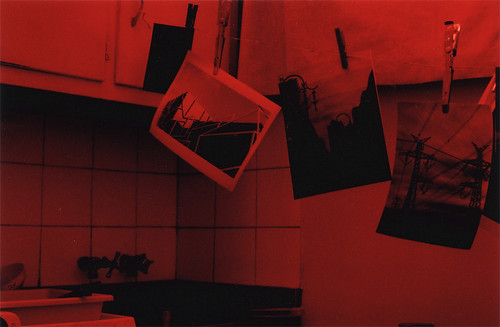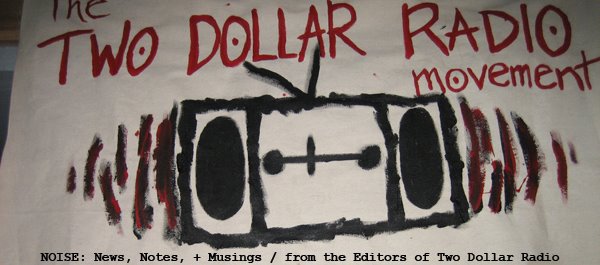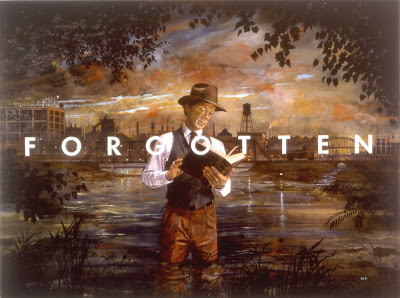By Emily Pullen
After a somewhat frustrating week where it seemed like computers and databases and websites were crashing at every turn, it was refreshing to open a book and have it still work. There is something to be said for a technology that has been pretty reliable for the last 500 years or so. (RIP 8-track players and virtual reality.)

 But it also got me thinking about the relationship between art and technology, and how there seems to be a certain proto-phase of development where the vision for the art is there, but the technology is still being honed by scientists. I'd like to look back, way back, to photography as an example, and then forward to digital as a literary medium.
But it also got me thinking about the relationship between art and technology, and how there seems to be a certain proto-phase of development where the vision for the art is there, but the technology is still being honed by scientists. I'd like to look back, way back, to photography as an example, and then forward to digital as a literary medium.
In the early 19th century, polymaths who wanted to use technology to improve their art (like Louis Daguerre) partnered with inventors and chemists to attempt to create lasting photographic images. Fine artists probably thought the scientific tinkering was more akin to alchemy than art, and it took several decades for the technology to develop into something easily utilized by artists. Even today, photography hasn't lost its technical roots -- after framing the shot and clicking the shutter, you still have to develop the film properly, expose the paper to the right amount of light, and chemically develop the photograph itself: art and technology swirling together. Digital photography offers the same swirling, but the chemicals have been swapped for pixels, and now pretty much anyone can do it.
 Just as chemists and inventors developed the technology that allowed photography to become an art, programmers and tech geeks are developing the technology that will allow digital to evolve from a format to a literary medium. When treating digital as a format, programmers simply take the text a writer has created and make it available digitally -- almost like translating the text. However, creating digital literature and harnessing the medium's unique capabilities requires a specialized knowledge of programming languages. As such, it is software engineers and computer programmers (the techies) who are best suited to use this new literary medium, not the traditional Writer. The only area where digital technology seems to be democratizing literature is in print-on-demand self-publishing (which I'm not yet convinced is a positive development). And this is still very much on the level of format, not medium. In a perfect world, developers will continue to hone the technology, the public will continue to gain knowledge, and they will eventually meet somewhere in the middle.
Just as chemists and inventors developed the technology that allowed photography to become an art, programmers and tech geeks are developing the technology that will allow digital to evolve from a format to a literary medium. When treating digital as a format, programmers simply take the text a writer has created and make it available digitally -- almost like translating the text. However, creating digital literature and harnessing the medium's unique capabilities requires a specialized knowledge of programming languages. As such, it is software engineers and computer programmers (the techies) who are best suited to use this new literary medium, not the traditional Writer. The only area where digital technology seems to be democratizing literature is in print-on-demand self-publishing (which I'm not yet convinced is a positive development). And this is still very much on the level of format, not medium. In a perfect world, developers will continue to hone the technology, the public will continue to gain knowledge, and they will eventually meet somewhere in the middle.
I think what the photography analogy suggests, more than anything else, is that we may be expecting too much too soon, digitally. In New Media Poetics (due in paperback from MIT Press in October 2009), the editor Adalaide Morris brings up an interesting visionary from the early years of the 20th century: Gertrude Stein. Morris writes, "For Stein, we are, each and every one of us, nimble citizens of an always newly technologized, mediated world that hasn't yet entered, much less altered, our categories of thought" (Morris 2). Now, as then, we're living IN the technology even as we're developing the categories and language to conceptualize its significance. Merriam-Webster added the phrase "personal computer" to their dictionary in 1976. "E-mail" in 1982, "internet" in 1985, "e-book" in 1988 (surprisingly), "blog" in 1999, and "google" as a verb in 2001. We're talking IN MY LIFETIME, people, and we all know how quick Merriam-Webster is to allow new words into its fold.
 A huge difference, however, between this new century and the last, is the exponentially growing beast called consumer culture. We've been conditioned to expect huge speed, both in the development of technologies and in their dissemination over the last few decades. At the LA Festival of Books in April, Richard Nash asserted that publishers perfected the art of supply in the 20th century, but to survive the transition to the 21st, they will have to turn their attention to consumer demand. More specifically, I think he's suggesting that large publishers try to learn something from the scrappy way independent presses and bookstores have been surviving for decades: by acting as cultural noise filters that are uniquely calibrated to what their readers want. In a lot of ways, I believe the public is ready to consume digital literature. But the technology is still, quite obviously, developing. If fact, as publishers strive to fulfill consumers' growing desire to read digitally, they may complicate things by trying to get it done themselves rather than encouraging broader, more unified development of the technology itself. That's why we have so many formats and so many devices, and none of them can do as much as we imagine they should.
A huge difference, however, between this new century and the last, is the exponentially growing beast called consumer culture. We've been conditioned to expect huge speed, both in the development of technologies and in their dissemination over the last few decades. At the LA Festival of Books in April, Richard Nash asserted that publishers perfected the art of supply in the 20th century, but to survive the transition to the 21st, they will have to turn their attention to consumer demand. More specifically, I think he's suggesting that large publishers try to learn something from the scrappy way independent presses and bookstores have been surviving for decades: by acting as cultural noise filters that are uniquely calibrated to what their readers want. In a lot of ways, I believe the public is ready to consume digital literature. But the technology is still, quite obviously, developing. If fact, as publishers strive to fulfill consumers' growing desire to read digitally, they may complicate things by trying to get it done themselves rather than encouraging broader, more unified development of the technology itself. That's why we have so many formats and so many devices, and none of them can do as much as we imagine they should.
In an artistic time continuum that, in the past, went from technological development to creative production to public appreciation, where will consumer demand figure in? And is digital technology ready to become a popular literary medium (rather than an experimental one)?
==========
EMILY PULLEN grew up, went to college, and cultivated her love for books and corn in Iowa. She discovered her love of bookstores in Boston, and currently works at Skylight Books in Los Angeles. She believes strongly in the symbiotic relationship between indie bookstores and indie publishers, and one day she hopes to be involved in some sort of hybrid of the two. She is also currently serving on the Bookseller Advisory Council of the ABA and the Emerging Leaders Council of young booksellers. Her favorite authors include William Faulkner, Don DeLillo, and Jeanette Winterson.




















